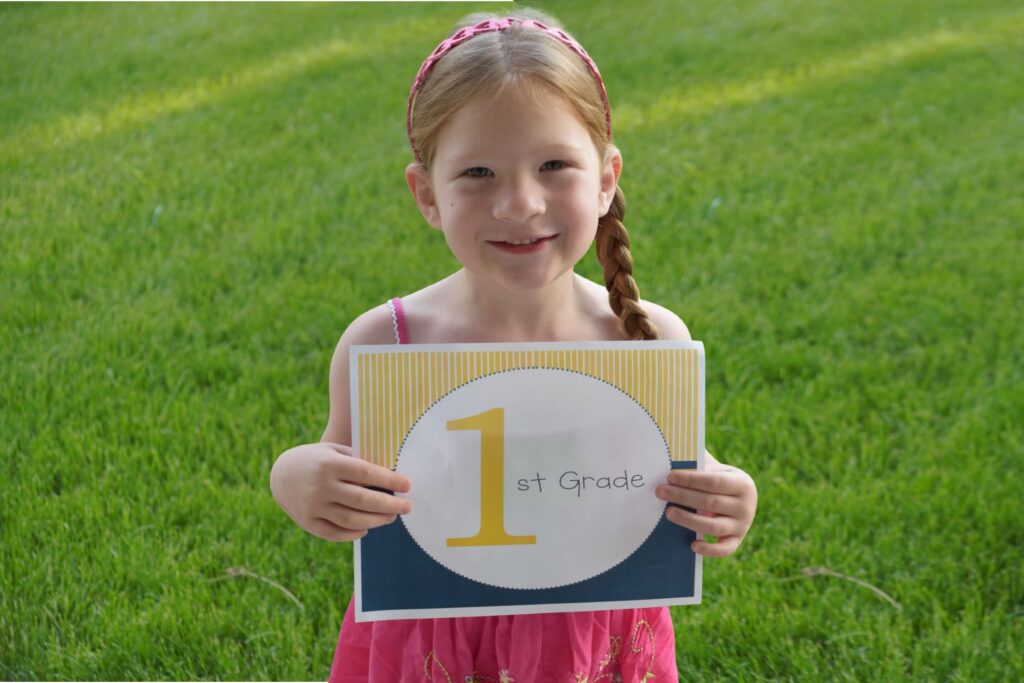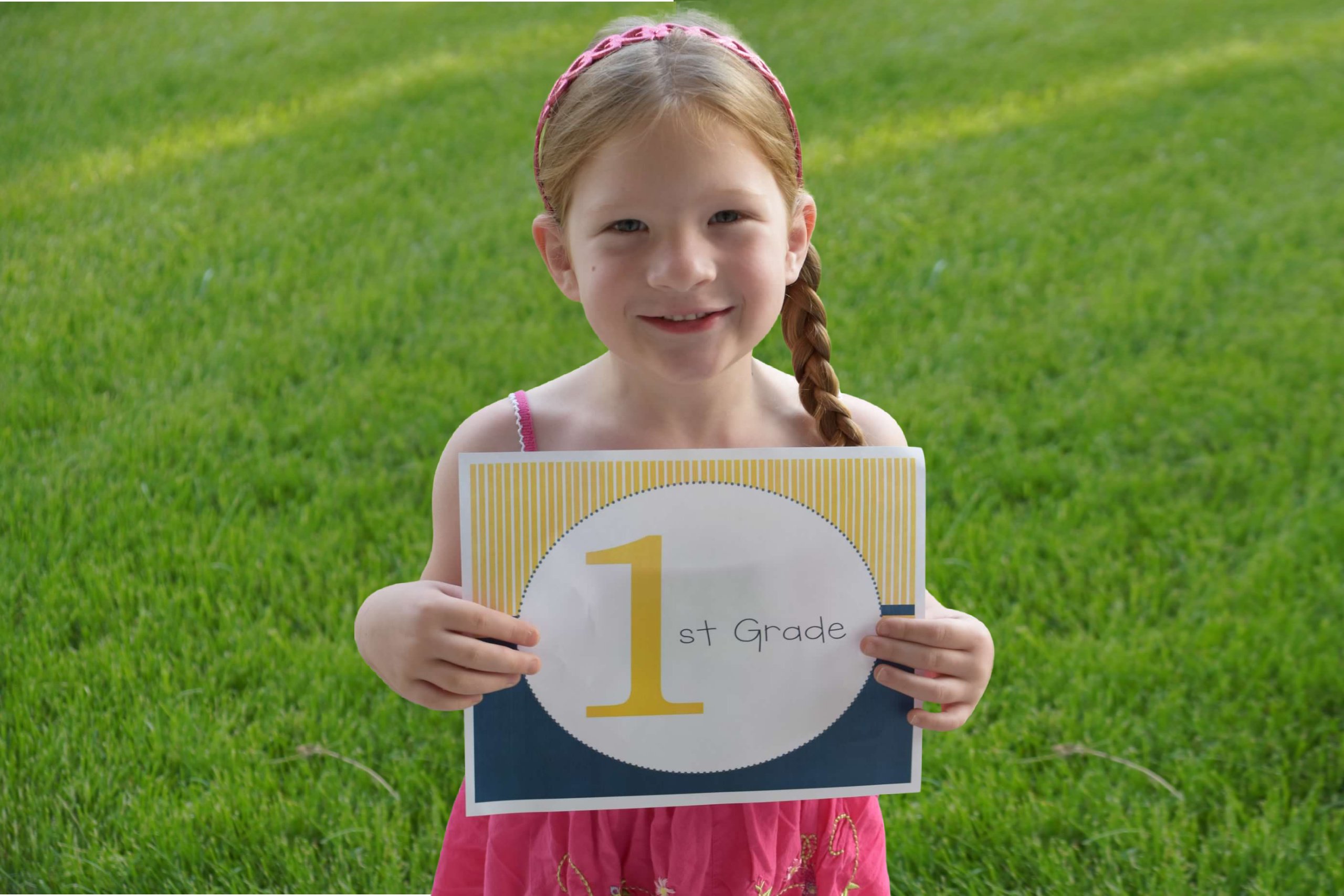
Navigating First Grade: A Comprehensive Guide for Parents and Educators
First grade is a pivotal year in a child’s educational journey, marking a significant transition from kindergarten’s play-based learning to a more structured academic environment. For parents and educators alike, understanding the key developmental milestones, curriculum expectations, and effective strategies for supporting first graders is crucial for ensuring a successful and enriching experience. This comprehensive guide aims to provide valuable insights and practical advice to help first graders thrive academically, socially, and emotionally.
Academic Expectations in First Grade
The academic curriculum for first grade typically focuses on building foundational skills in reading, writing, and mathematics. Here’s a closer look at what parents and educators can expect:
Reading
Reading instruction in first grade emphasizes phonics, fluency, and comprehension. Children learn to decode words using phonics rules, improve their reading speed and accuracy, and develop comprehension strategies to understand the meaning of what they read. Expect first graders to:
- Recognize and produce rhyming words.
- Identify the main idea and supporting details in a story.
- Make predictions about what will happen next.
- Read aloud with fluency and expression.
Writing
Writing skills in first grade focus on sentence construction, grammar, and creative expression. Children learn to write simple sentences, use correct punctuation, and develop their writing voice. Expect first graders to:
- Write simple sentences with correct subject-verb agreement.
- Use capital letters and punctuation marks correctly.
- Write short stories with a beginning, middle, and end.
- Express their thoughts and ideas in writing.
Mathematics
Mathematics instruction in first grade focuses on number sense, addition, subtraction, and basic geometry. Children learn to count, compare numbers, solve simple math problems, and identify shapes. Expect first graders to:
- Count to 100 by ones and tens.
- Add and subtract numbers within 20.
- Solve word problems involving addition and subtraction.
- Identify and describe two-dimensional shapes.
Social and Emotional Development
Beyond academics, first grade is also a critical time for social and emotional development. Children learn to interact with their peers, follow classroom rules, and develop their self-esteem. Here are some key areas of social and emotional growth to consider:
Social Skills
Developing strong social skills is essential for first graders. They learn to share, cooperate, and resolve conflicts with their peers. Encourage your child to:
- Take turns during games and activities.
- Listen to others and respect their opinions.
- Work collaboratively in group projects.
- Use kind words and actions.
Emotional Regulation
First graders are learning to manage their emotions and develop coping strategies for dealing with frustration, anger, and sadness. Help your child to:
- Identify and name their emotions.
- Practice deep breathing exercises to calm down.
- Talk about their feelings with a trusted adult.
- Develop problem-solving skills to resolve conflicts.
Self-Esteem
Building self-esteem is crucial for first graders. They need to feel confident in their abilities and valued for who they are. Support your child by:
- Providing positive reinforcement and encouragement.
- Celebrating their accomplishments, big and small.
- Helping them to identify their strengths and talents.
- Creating a supportive and loving environment.
Strategies for Supporting First Graders
Parents and educators play a vital role in supporting first graders‘ academic, social, and emotional growth. Here are some effective strategies to consider:
Create a Supportive Learning Environment
A supportive learning environment is essential for first graders. This includes:
- Providing a quiet and organized study space at home.
- Establishing a consistent homework routine.
- Communicating regularly with your child’s teacher.
- Creating a positive and encouraging atmosphere.
Encourage a Love of Reading
Reading is fundamental to academic success. Encourage your child’s love of reading by:
- Reading aloud to them regularly.
- Visiting the library and letting them choose their own books.
- Making reading a fun and enjoyable activity.
- Discussing the books they are reading.
Foster a Growth Mindset
A growth mindset is the belief that intelligence and abilities can be developed through effort and learning. Encourage your child to:
- Embrace challenges and see them as opportunities for growth.
- Persist through difficulties and learn from their mistakes.
- Focus on the process of learning rather than just the outcome.
- Believe in their ability to improve and succeed.
Promote Social and Emotional Well-being
Social and emotional well-being is just as important as academic success. Promote your child’s social and emotional well-being by:
- Providing opportunities for them to interact with their peers.
- Teaching them social skills and conflict resolution strategies.
- Helping them to manage their emotions and develop coping mechanisms.
- Creating a safe and supportive environment where they feel loved and valued.
Addressing Common Challenges
While first grade can be a rewarding experience, it can also present some challenges. Here are some common challenges that first graders may face and strategies for addressing them:
Reading Difficulties
Some first graders may struggle with reading due to various factors, such as dyslexia or a lack of phonemic awareness. If your child is experiencing reading difficulties, it’s important to:
- Consult with their teacher and a reading specialist.
- Provide extra reading support and practice at home.
- Use multi-sensory reading strategies.
- Be patient and encouraging.
Behavioral Issues
Some first graders may exhibit behavioral issues such as difficulty following rules, impulsivity, or aggression. If your child is experiencing behavioral issues, it’s important to:
- Identify the underlying causes of the behavior.
- Establish clear expectations and consequences.
- Teach them social skills and emotional regulation strategies.
- Work collaboratively with their teacher and school counselor.
Anxiety
Some first graders may experience anxiety related to school, separation from parents, or social situations. If your child is experiencing anxiety, it’s important to:
- Validate their feelings and let them know that it’s okay to feel anxious.
- Teach them relaxation techniques such as deep breathing and mindfulness.
- Gradually expose them to the situations that trigger their anxiety.
- Consult with a therapist or counselor if their anxiety is severe.
Conclusion
First grade is a crucial year for building a strong foundation for future academic success and personal growth. By understanding the key developmental milestones, curriculum expectations, and effective strategies for supporting first graders, parents and educators can help children thrive academically, socially, and emotionally. Remember to create a supportive learning environment, encourage a love of reading, foster a growth mindset, and promote social and emotional well-being. With the right support and guidance, first graders can have a positive and enriching experience that sets them up for success in the years to come. A happy and well-supported first grader is more likely to become a confident and successful learner.
[See also: Kindergarten Readiness Checklist]
[See also: Helping Children With Homework]
[See also: The Importance of Play in Child Development]

